By Lyndsey Hafer-Williams
Sep 22, 2018,
By Lyndsey Hafer-Williams
Sep 22, 2018,
Ok. I admit it. For over a year I have been following CFDG (Clean Food Dirty Girl) like a cult. I’m in love with Molly Patrick, Team Dirty, and all of my Dirty Girls and Dirty Dudes.
I am utterly and insatiably devoted, dedicated, and delirious about eating plants. The supportive, creative, informative, and hysterically funny private Facebook group is the first thing I read in the morning and the last thing I see on social media at night. I spend my days dreaming about all the yummy whole-food plant-based meal plan food in my fridge. I would probably shave my head, don heavy ornamental robes, and go join a Dirty Commune if it was an option.
This type of behavior is just not normal for me at all. I grew up in an environment where questioning, of anything, was not allowed. So I learned to read at an early age and I secretly read everything I could get my hands on, about every topic. I was voracious, tenacious, and unrelenting in my search for knowledge and answers to my questions.
As an adult, I decided that never again would I just blindly follow someone or something on pure faith, or because it sounded right. I would never stop reading and never stop learning. In fact, that is how I started on the path that eventually led me to Clean Food Dirty Girl. I read all the books, and watched all the documentaries, and listened to all the experts about a plant based way of eating.
However, since joining the monthly plant-based meal plans and reading Molly’s weekly blog post, I’ve felt my natural curiosity and questioning about food (and all its components) has waned. I just know deep down in my soul that I am now on the right path. I’m happy, healthy, satisfied, and feel completely nourished by plants and nurtured by this community. At this point, if Molly told me to eat kale, completely naked, chanting Buddhist mantras three times a day, I probably would without question.
When Molly asked me to start researching lectins in plant foods and the controversy that seems to be swirling around this topic, my first response was: WTF is a lectin? I have since learned that this topic is causing lots of confusion, questions, and inviting plenty of wildly varying opinions. And, in my humble opinion, it is causing fear of food – and that is never a good thing.
So, I enthusiastically jumped down the Google rabbit hole and started researching. Are you ready? Let’s break this down and hit it head on in magnificent Dirty Style!
The easy part – WTF is a lectin?
Simply put, lectins are a vegetable protein found in almost everything in our food supply, but especially in fruit, vegetables, grains, and legumes. There are many different types and some do good things for us and are beneficial, while others are highly toxic and can be harmful.
Lectins are proteins that bind carbohydrates together – they literally help cells stick together. It seems that this sticky situation is thought to hinder absorption of some important nutrients. There is also a theory that they could be a cause of leaky gut syndrome that may lead to autoimmune issues or allergies. But, not all lectins are equal. For example, some lectins have tremendous health benefits and have been shown to strengthen the immune system, have antibacterial properties, and possibly even allow the body to identify and destroy cancer cells.
Dr. Joel Fuhrman (check out Molly’s interview with Dr. Fuhrman) has written extensively on the potential benefits of lectins in plant foods:
“Plant lectins bind carbohydrates during digestion, slowing or preventing their breakdown, and thereby reducing the glycemic effects of the food. You may hear a claim that lectins disrupt digestion, but this is misleading. This action of lectins is most likely a contributing factor to the pro-weight loss and anti-diabetes effects of beans and other plant foods. Beans are rich in anti-cancer phytochemicals and are the foods demonstrating the most powerful association with lower rates of breast cancer in massive epidemiological studies.”
He goes on to explain other awesome news on lectins:
“A lectin in common mushrooms has been found to inhibit proliferation of cancer cells in vitro. Mushrooms are another food offering powerful protection against cancer. And that’s not the only one: similar results have been found for lectins from fava beans, soybeans, bananas, buckwheat, jackfruit, and wheat. Some of these lectins are being investigated as potential cancer therapies.”
Ok, then, that sounds fine (if not downright exciting in the area of cancer research!) so what’s the problem?
The controversy…
In the spring of 2017 a book called The Plant Paradox was written by a cardiologist named Dr. Steven Gundry. His book claimed that lectins in plant foods are the direct cause of weight gain, type 2 diabetes, coronary artery disease, autoimmune diseases, and many other chronic medical conditions that currently plague our society.
It appears that his big discovery is that lectins are what ails us. He believes that they are the root cause of major disease and health disorders. It also appears that the media has seized upon this as our new food enemy and “lectin” now enters the lexicon of those scary words like “carbs”, “fat”, “calories”, “sodium”, “sugar”, and “gluten”.
So, now what’s a Dirty Girl to do? Plants are our homies, our friends, our life source, our way of eating!
According to Dr. Gundry, and his celebrity supporters, including actress Gwyneth Paltrow, musician Kelly Clarkson, and cardiologist Dr. Mehmet Oz, plants contain: “highly toxic… proteins called lectins that are found… in grains like wheat and in fruits, vegetables, nuts, beans… which many of us regard as healthy. After consumption, they incite a kind of chemical warfare in our bodies, causing inflammatory reactions that can lead to weight gain and serious health conditions.”
Holy shit! Chemical warfare? Inflammation? WEIGHT GAIN?!? Good grief! If this is true then everything that I thought and believed about a plant based way of eating just fell apart. If this lectin kid is the enemy, then we Dirties are getting screwed and not in a good way!
Ok. Breathe, Dirties, just breathe. We need science and we need facts.
Let’s check in with our most trusted plant based docs and see what they have to say.
The plant based nutrition experts weigh in…
Dr. T. Colin Campbell:
“Beans, vegetables, mushrooms, nuts and seeds are high-nutrient, fiber-rich foods that are consistently associated with beneficial health outcomes and a longer life; this suggests that if there is any potential negative of certain plant lectins, it is enormously outweighed by the benefits of the fiber and phytochemicals in these plant foods. What a shame that this type of unscientific nonsense creates so much unnecessary confusion.”
Dr. Joel Fuhrman:
“There is one lectin known to cause temporary gastrointestinal distress in humans, however it is easily avoided. A lectin called phytohemagglutinin found in raw beans (red kidney beans in particular) binds to a carbohydrate present on human intestinal cells. This lectin is inactivated by cooking. If you use dry beans, take the necessary precaution of making sure they are thoroughly cooked – don’t eat undercooked beans. It is likely there are individuals who should avoid a specific food because of their individual response to a lectin in that food. But this does not mean that lectins are harmful for the general population. In fact, foods having more lectins are longevity promoting.
The truth is, the scientific evidence does not support the view that lectins are harmful to our health. What is harmful to our health is promoting this idea which has led to many people being afraid to eat health-promoting foods like beans and tomatoes. The most recent book warning against lectins is full of twisted and incorrect information that will further confuse and harm the public – who are already eating an insufficient amount of plant foods.”
Dr. Garth Davis:
“Like gluten and carbs, lectins have come under unfair attack. The characterization of lectins as assailants on our health is utter nonsense. If lectins are so poisonous, why would we see such amazing health in people whose diet is dominated by lectins? Indeed, beans contain more lectin than any other food, so if lectins were harmful, it would follow that people who eat beans would have shorter lifespans—yet studies of human longevity around the world have shown the exact opposite.”
Dr. Joel Kahn:
“When it comes to something as important as your health, it’s important to read past the headlines. You must always look for peer-reviewed, ideally randomized, studies. Ultimately, we all know the answer to nutrition: It’s eating whole foods, largely or only plant-based, predominantly locally sourced, close to nature.”
Dr. Michael Greger (Molly interviewed Dr. Greger too!):
“In the 1800s, a compound was discovered in castor beans, which we would come to know as the first of a class of lectin proteins. Every decade or two, in the popular literature, and the medical literature, a question is raised whether dietary lectins are causing disease. It’s easy to raise hysteria about lectins. After all, that first one, found back in 1889, went by the name ricin, known to be a potent homicidal poison, used by the Kremlin to assassinate anti-Communist dissidents.
And, ricin is a lectin. Thankfully, however, many lectins are non-toxic, such as those [found in] tomatoes, lentils, and other common foods. And, even the ones that are toxic—like those found in kidney beans—are utterly destroyed by proper cooking. The purported “Plant Paradox” is that on one hand, whole healthy plant foods are the foundations of a good diet, yet we supposedly need to avoid beans, and whole grains, and certain fruits and vegetables, because of the evil lectins.
But, if you look at the actual science, all whole plant foods are associated with decreased mortality—meaning the more of them people ate, the longer people tended to live. And, this includes lectin-filled foods, such as whole grains and beans. So, maybe there’s really no paradox, after all. We’ve known since the early ‘60s that conventional cooking methods effectively destroy lectins in beans, and therefore, it is possible to ignore any human problems that could be associated with lectins from properly processed legumes.”
Dr. John McDougall:
“The exaggeration of the frequency and severity of adverse reactions to lectins has brought about the popularity of a variety of low-lectin diet plans. According to these plans, you must avoid wheat, rice, corn, potatoes, all beans; and obtain daily calories from the two major categories of food poisons: animals and vegetable oils. The ultimate outcome of asking people to seek health by lectin-avoidance soon means overweight and obesity; and not long afterwards, diabetes; heart attacks; arthritis; cancer of the breast, colon, and prostate; and much more pain and suffering. Thus, this pathway of abstaining from lectin-containing foods (grains, beans, and potatoes) circuitously kills people, by recommending for them to instead eat the only remaining foods: animals and vegetable oils.”
Dr. Caldwell Esselstyn, Jr:
“I have assembled hard, irrefutable, scientific proof that amazing results can happen by switching away from animal protein to a plant-based diet. I certainly do not worry about the lectin in plants. Artery and heart disease can be stopped and even reversed by switching away from animal proteins to a diet consisting strictly of whole-food, plants… results that would be impossible if plant lectins were truly the cause of the very chronic diseases being stopped and even reversed by switching to a 100% whole foods, plant-based diet.”
Ok. I love that! I’m so very thankful for these trusted physicians and their fact-based, scientific approach to all of this unnecessary uproar.
The Down and Dirty way to handle this info…
First and foremost: Calm down.
Second: Let’s go back to the basics of our plant based WOE (way of eating) and that is to simply eat the rainbow! Double down on a wide variety of gorgeous whole plant foods – we’re talkin’ fruits, veggies, nuts, seeds, spices, whole grains, beans, and legumes. Avoid overly processed foods, and take your B12! Like Molly says, “eat more whole plant foods and less of everything else”. Easy peasy.
Third, and most directly related to lectins: Cook your beans and grains. Do not eat raw beans or grains. Not that we ever would!
Fourth: Check out the references below for more information, and always be skeptical of those promoting fad diets or trying to scare us with new buzzwords. Find out who sponsored their studies and if the information is based on proven scientific fact. Determine (and be wary!) if there are expensive supplements, books, computer software, or other marketing ploys involved. Ask yourself if this is really about true dietary health concerns or is it sensationalism?
That’s it, no need to overcomplicate it..
A personal note…
I have spent most of my life fearing food. Especially, the components of food. I have counted calories, restricted carbs, scrutinized fat, eliminated sugar, and watched my sodium intake. I followed every fad diet that ever looked my way. It was exhausting and completely counterproductive to a healthy and happy life. I absolutely refuse to go back and I’d like to welcome you to join me. Let’s not buy into fear that has no business being there.
Lyndsey Hafer-Williams
Contributing writer for Clean Food Dirty Girl
Thank you Lyndsey for wrapping this topic up in such an informative and entertaining post. Let’s all rest easy now that we know what the fuck a lectin is and that they aren’t out to get us.
I’m curious, what was your impression of lectins in plant foods before you read this post and how has that impression changed? Talk to us in the comments below!
xo Molly
Today’s recipe is simple and surprisingly delightful.
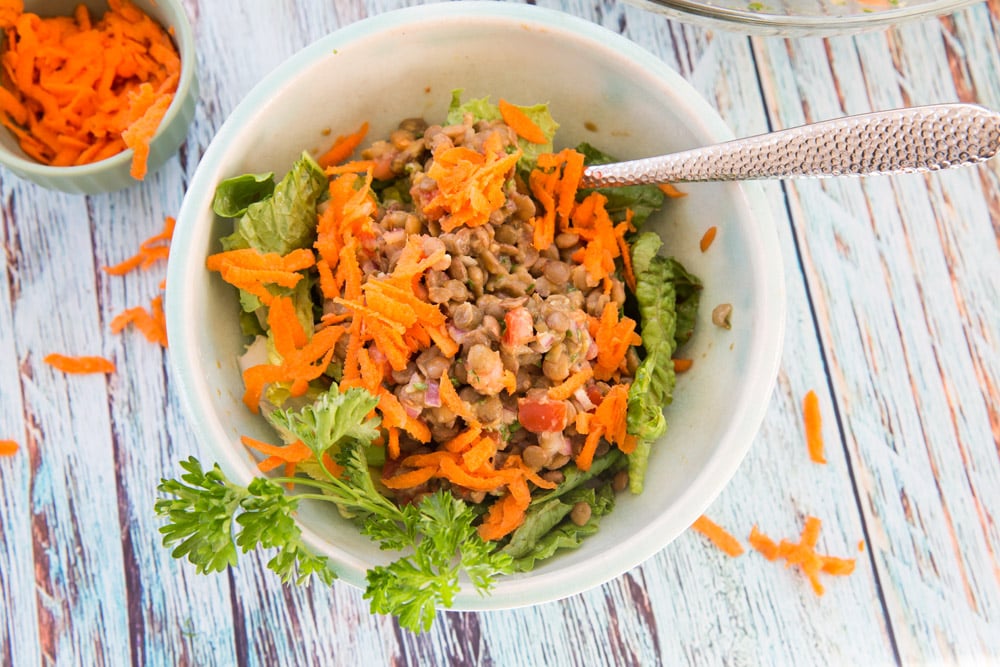
Ingredients
- 3 tablespoons lemon juice
- 2 garlic cloves, minced
- 1 tablespoon prepared yellow mustard
- ¾ teaspoon salt
- 1 teaspoon onion powder
- ½ teaspoon black pepper (about 20 turns)
- ¼ teaspoon ginger powder
- 3 cups cooked brown or green lentils (450g)
- 1 cup finely diced tomato (180g)
- ½ cup finely diced red onion (65g)
- ¼ cup minced fresh parsley (loosely packed / 12g)
- 1 jalapeno pepper, seeded and minced (omit if you don’t like spicy)
Instructions
- Make sure you have cooked lentils before you make this recipe. You can use canned or make your own (link to recipe in notes).
- In a large mixing bowl, whisk together the lemon juice, garlic, mustard, salt, onion powder, black pepper and ginger powder.
- Add the cooked lentils, tomato, red onion, parsley and jalapeno. Stir until well combined then place in your refrigerator to chill before serving.
Notes
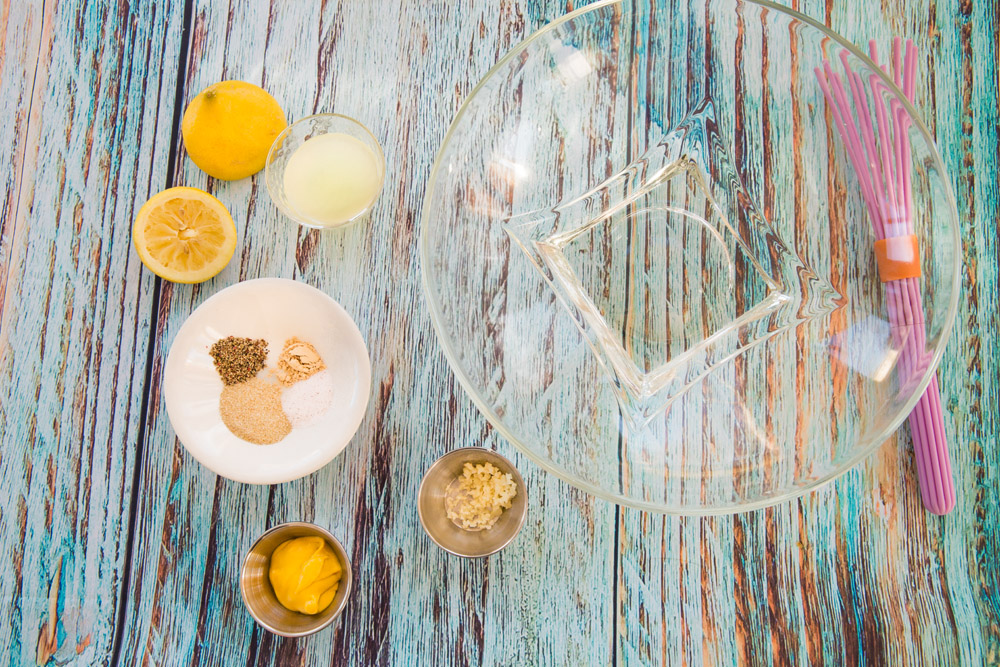
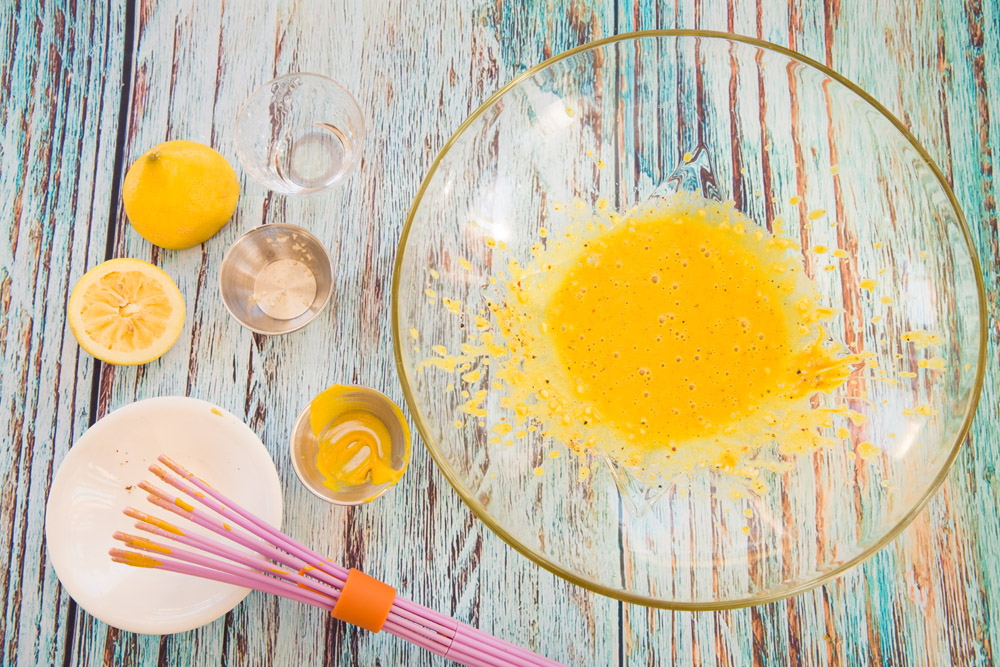
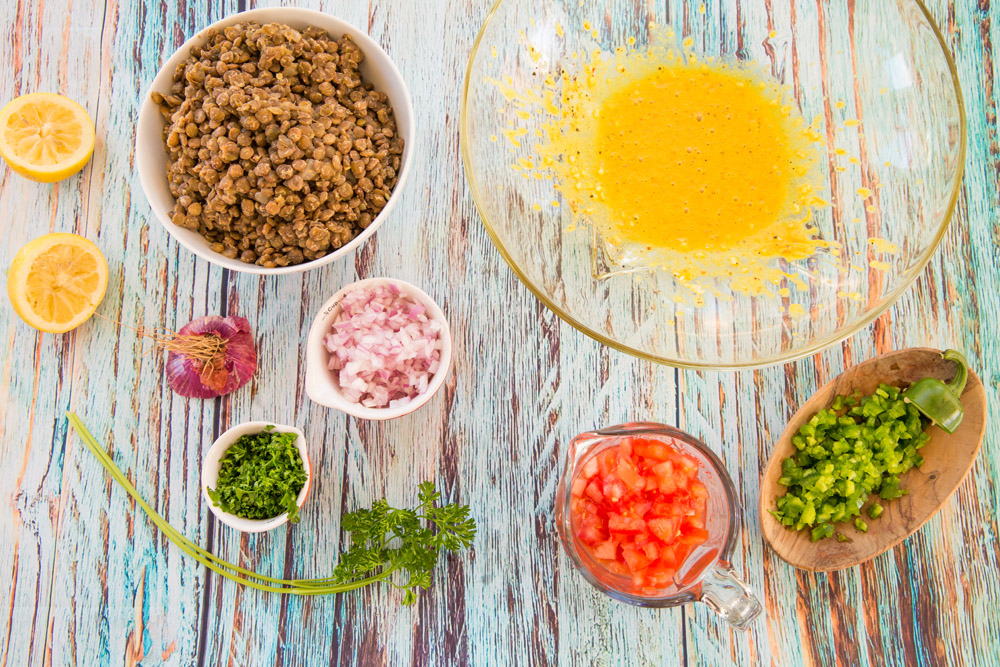
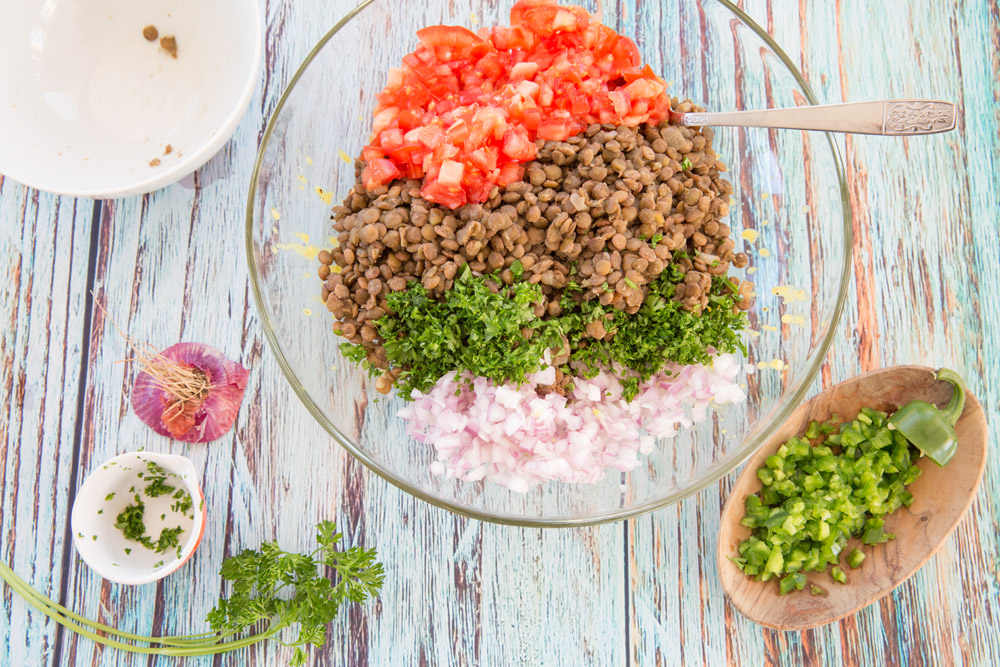
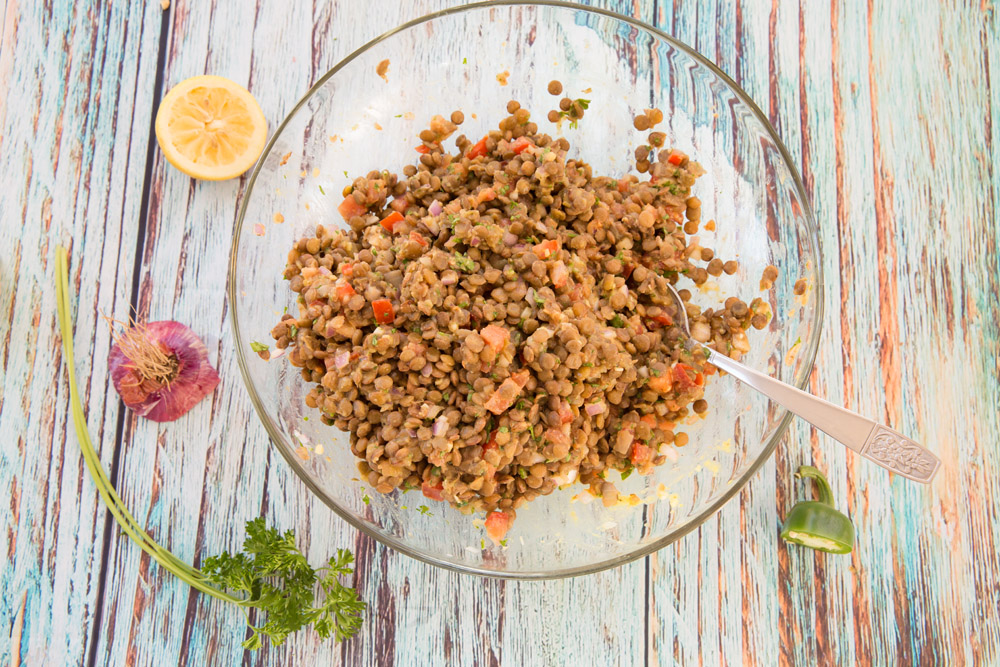
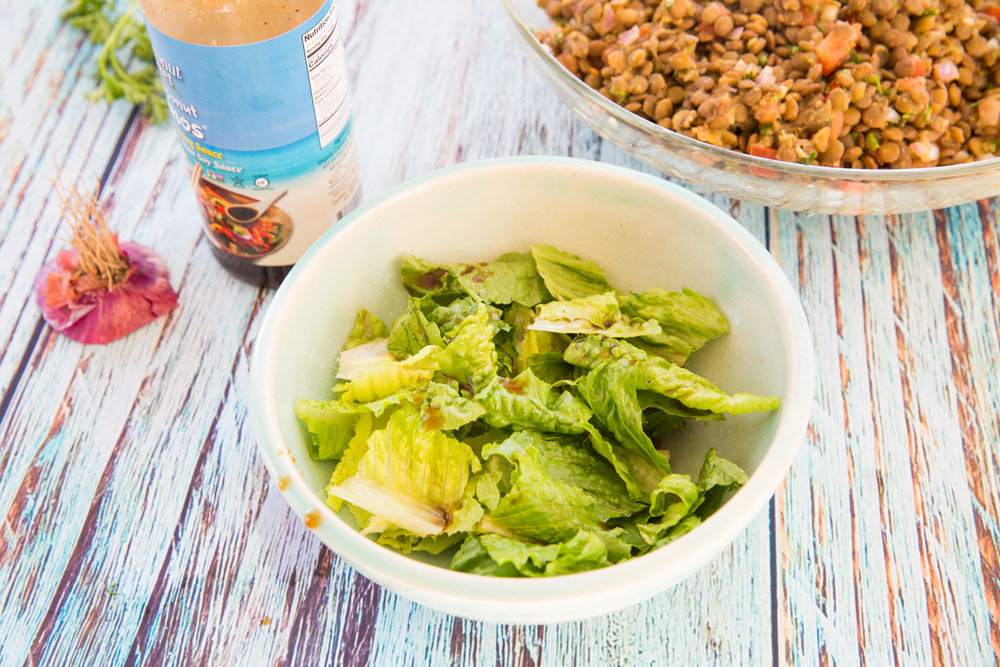


Wishing you a happy week. May it be filled with taking lectins off your list of things to worry about.
Xo
Molly
References
*As always, if you believe you may be having a particular reaction to any type of food, please seek medical advice from your physician*
Forks Over Knives
Dr. Fuhrman
Dr. Greger
Dr. Greger
Dr. McDougall
32 Comments
Leave a Comment
Love the food that loves you back
Get instant access to thousands of plant-based recipes and meal plans, no credit card or perfection required.





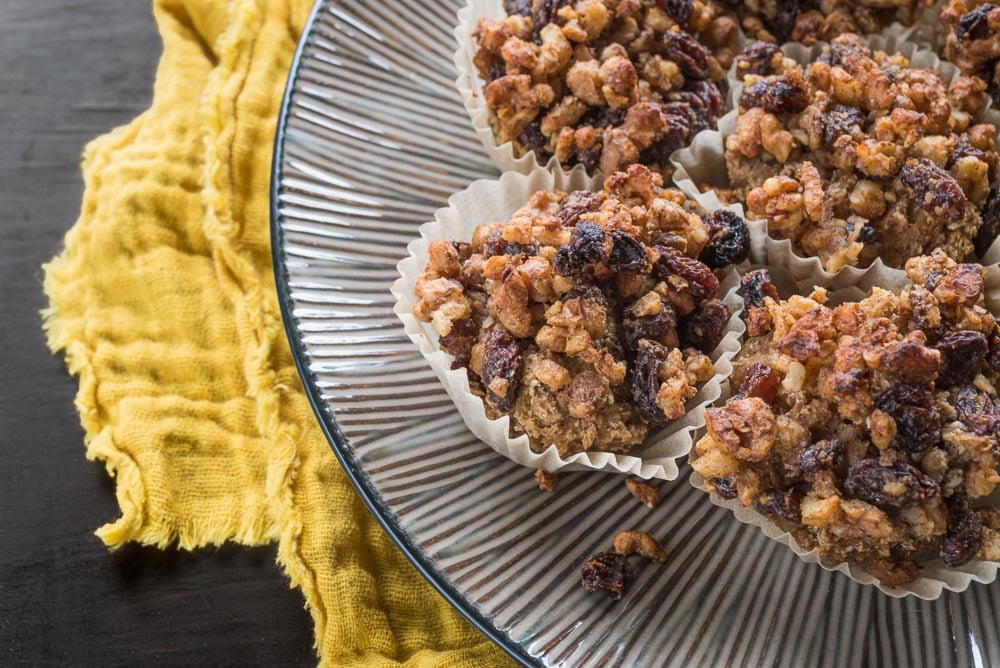
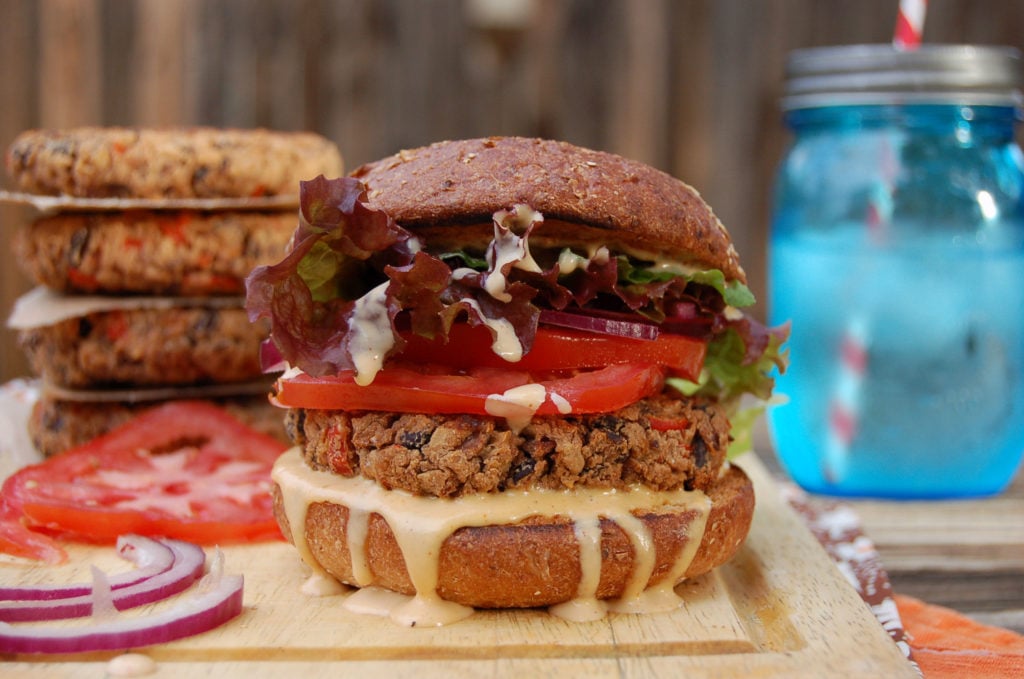


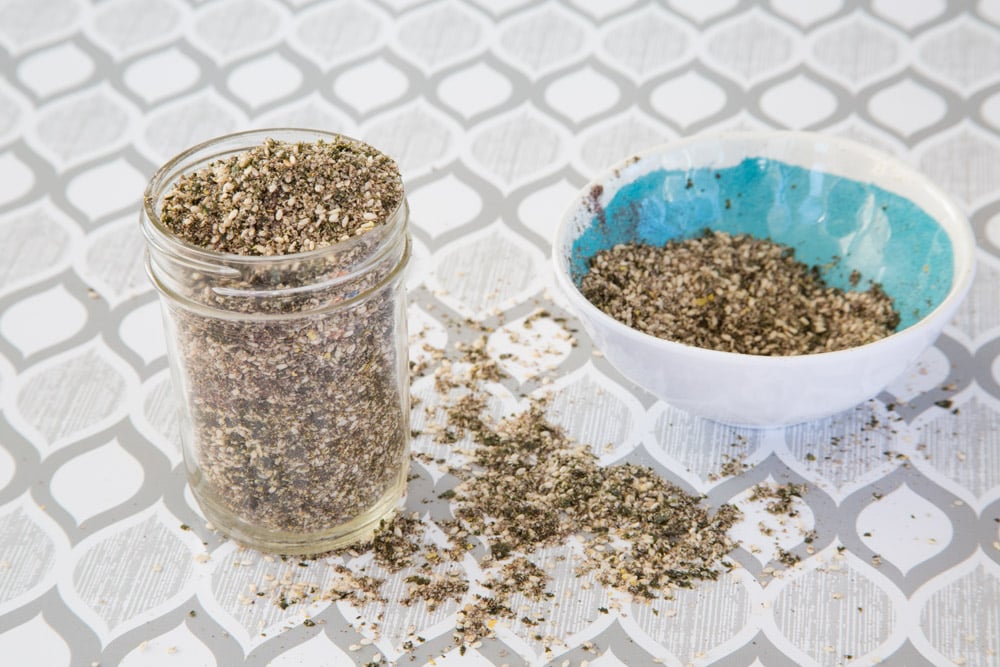



i have a question… you said that beans need to be cooked before consuming… but when i make homemade hummus i use raw beans… are you saying im poisoning myself with lectins when i consume the hummus?
I’m presuming you’re using canned garbanzo beans. They are not raw, but have already been cooked by the company that canned them. Enjoy that hummus!
Do you use canned beans or hard, raw beans?
It would be hard to make hummus with raw beans.
You should always use cooked beans for many reasons.
Canned beans are cooked so they work great, just rinse them first before using them.
xo
Molly
I also use soaked raw Garbonzo beans when I make hummus….I went raw foods for 2 years “only raw foods, soaked nuts, seeds, grains” before I came across “plant based community” and still feel my foundation of soaking all my nuts and seeds, grains and legumes is my best foundation (live enzymes) which many in the “plant based community” don’t talk about enough.
I wonder how much the meat and dairy industry paid Dr. Gundry To write that book…
I’m not sure about that but I do know he sells a subscription type lectin blocker for $80/month.
I had never heard of (read: paid attention to/acknowledged/considered) the presence of lectins in foods until recent posts on social media surrounding The Plant Paradox. I gave it exactly 2 seconds of attention and moved on. Why? I sincerely believe switching to a WFPB no oil/sugar/salt way of eating saved my life. I listened to/read Dr. Fuhrman’s book(s) and Dr, Greger’s book, made the change, reversed many many health conditions, lost 114# (so far), can run 30 minutes non-stop and feel amazing. All while eating tons of lectin containing produce and grains. Thank you for the above information…I’ll file it away if I ever need it. But, for now, I have zero concerns. (And the recipe looks amazing! And easy!)
High fives, Rhonda – you are on an awesome path!
xo
Molly
I trust the science. Dr Michael Gregor and Dr Esselstyn are leaders in the facts. Based on science, irrefutable evidence.
Yup, always best to stick with the facts.
xo
Molly
Thank you Lyndsey, Molly for clarifying. I have never fallen to these gimmicks of “lectin”, “carbs” and on and on but it bothers me to see that his book is a best seller. It should be listed in fiction category if you ask me :).
I glanced at the book Plant Paradox in a library and it was apparent to me that Dr. Gundry who first condemns lectins and then turns around and sells “Lectin shield” supplements, is completely inauthentic in his research. He said something like, if you eat 4 raw kidney beans, you will die. Who eats raw kidney beans!!!
Anyway, Thank you for shining the light on this topic.
Exactly.
Create a problem and all of a sudden the “solution” you’re selling sells a lot better.
Ha!
xo
Molly
great read, Lyndsey!! like my 98 year old momma says, “don’t worry honey… next week it will be something else”.
Oh, I love your grandma! She is so right.
xo
Molly
Excellent info. I read the Plant Paradox book and got scared! It was only a temporary freak-out because I let it go and went back to trusting the wisdom of T. Colin Campbell, Dr. Greger, Dr. Caldwell, and Forks over Knives! What the Health is an excellent documentary and made a big impression also.
Thanks!!
Glad it was only temporary! How does anyone live without beans??
xo
Molly
I recently learned of Dr. Gundry and the Plant Paradox. I watched a video presetnation regarding lectins. I have been deathly ill in the past from eating what I thought was a healthy diet that included…kidney and black beans. Recently experienced health issues from my diet when I incorporated bell peppers and hummus. Maybe lectins are worse for some than others. I know I won’t be eating anymore hummus kidney, black beans or bell peppers.
Thank you so much for this article! I am 100% convinced that WFBP is the best way of eating for mental physical and emotional heath. Having said that, I also believe very much as you have said above that people may have individual needs within that realm. I have tried for the best part of 6 years to eat purely WFBP but after 30 years of antibiotics, steroids, surgery’s and multiple health afflictions I cannot seem to digest beans or grains for the life of me. It causes so much digestive distress. I have desperately been attempting to “heal my gut” for about 15 years lol and I’ve tried it all. I am never adverse to trying new things, I read Plant Paradox out of curiosity and have recently started the Vegan version (yes there is one and you can have beans if you want!) which includes all the green leafys, mushrooms, sweeties, nuts, low sugar fruits like apples pears and berries and all the root veg you want. I would love to heal up my stomach so that I can transition to fully WFBP with no restrictions. Gundry despite his OBVIOUS multiple flaws states in his book on several occasions that the less meat you eat the healthier you will be and discusses blue zones and veggie populous around the world with great admiration. Maybe this plan won’t help but hopefully it will and for me there is no harm in trying!
.
Best wishes to everyone
Rebecca
.
P.S I’m currently traveling Italy for two months and dang you Italian dirties have it so good. The produce here is INSANE!! And so cheap!
.
Excellent post! Thank you for taking the time to research and explain.
I have some friends who “read once where kidney beans are poisonous.” I pressed the issue and all they knew was that KBs had some toxin that made you sick. Of course, I know about the phytohemoglutinin (and now thanks to this post, lectins in general) and I’d love to share this post with them (and also the post with Dr. Mo’s take on the medical industry and the “how to prevent diabetes and get off diabetes meds” post). I know we’re not supposed to share the meal plan recipes with non-payers but are these blog posts OK to share? I mean, a blog post of yours is how I found CFDG in the first place (I think I was searching for a recipe for something and your post came up in the results). I also have friends who are buying into the medical industry’s “diabetes fairy tale” and would love to share a DOCTOR’S opinion!
Hi Dmitri, Thanks so much for asking! Feel free to share blog posts as they are free content. There are share icons at the bottom of each blog post (just below where Molly’s picture and sign-off appear at the bottom of the post) or copy/paste the URL if that is easier for you. ~Karen
I bought into the fear for a while before becoming WFPB. The other side backs their theories with science, too so it’s difficult to see through the opinions to draw your own conclusions. After doing other research, and now reading this, I don’t trust or believe them anymore. Thank you for pulling together so many facts and trusted opinions on this subject. I have made this way of eating my lifestyle for over a year and I know I will continue on this path for life, unless new science discovers a better way that supports health, and our environment.
I’ve been trying to read The Plant Paradox for a while but I have a hard time because it’s utterly RIDICULOUS to think that eating food plants are harmful. It just isn’t true-so much research behind positive health effects of plant based diets. I just can’t go there with Dr. Gundry.
Whew! This post was very timely for me as I was just reading about it this morning and feeling all confused. Thanks for clearing that up!! I trust you Team Dirty and also really respect the plant-based experts you quoted. ? I agree with you that fear of food is not a good thing. I am so glad you have been freed from the depressing diet treadmill!! Food was meant to bring JOY!
Thank you SO much!! I’ve been fretting about lectins and, like you Lindsay, it was giving me food anxiety. Thanks for compiling all that info from those reputable people. Let’s go eat plants & stop worrying about the rest!
Excellent article! Can you please tell me which instant pot is best for vegans and can l cook lentils in one?? Thank you!!
Hi Annie, As far as the Instant Pot, the size depends on how many you are cooking for. I have a 6 quart (Lux-60) Instant Pot and it works perfect for my household of two adults. I can easily double recipes if I want to make extra. Yes, they cook lentils just fine. My best suggestion to see what others use and like is to join our awesome private Facebook group and do a search for past posts about the device. Keywords you might search are: “Instant Pot recommendation” “Instapot recommendation” (yes, misspelled because this is common) and possibly by model “Instant Pot duo” “Instant Pot lux” and see what pops up. Thanks for stopping by! ~Karen
I tried the lectin free way and it worked for me. My gut was always upset, digestion bad and interrupted sleep. Now I sleep all night, digestion normal, no bloating and energised, even lost some weight. I introduce one or two lectin foods back into diet occasionally but predominantly eat lots greens, brown rice or pasta, etc and I feel great.
All medicos promote their agendas and the public can try different things to suit their way. I’ve found my way via FODMAP and lectin free but not strictly.
Thank you for your opinions everyone. Judy
Hello, if for the last million years since we were monkeys we didn’t eat grain or legumes why should we eat it now? Wouldn’t it be safe to say that evolution gave us a disposition towards eating leaves, roots, berry’s and fruits to stay healthy? Also don’t forget, however much you disagree with Dr Gundry’s view on lectins he still promotes a very low sugar diet and a diet with no processed food etc. which from many reviews that I have read seems to be helping more than hindering people. Is time spent reviewing him better than time spent reviewing the disinformation of the cereal, sugar filled and processed food companies? Why review the lesser of all evils?
Thanks
Tom
Hi Tom, This topic is important in our community because cooked legumes are key sources of nutrients in a whole food plant based dietary pattern; and so, this topic is not a lesser evil in our community – cooked legumes are a nutritious staple food and a dietary component of some of the longest lived communities that we know of on this planet. If you do not wish to consume whole grains or legumes, do what works for you. ~Karen
I have been suffering with multiple symptoms such as brain fog, low or no energy, sinus and skin problems since 2018, so much that I began allergy shots again. Around the begining of the COVID I discovered Dr. Gundry and at first I dismissed him as a quack because Lectins we’re new to me. I have gradually introduced his concepts into my diet and timing meals to create the mini fast effect as well as cutting down on meat and especially since reading the Energy Paradox and the family cookbook I have seen an amazing improvement. Dr. G doesn’t ban all legumes or nightshades if they are prepared correctly so reading these extreme reviews of his work make me wonder about the motivations of his critics. His books are detailed in the studies cited which read like cutting edge science if you check out the footnotes. I too was reluctant to give up my whole wheat (glyphosate saturated if not organic) brown rice (same) and meat most of all… But I have to tell you it’s working for me! I’ve always been terribly allergic to soy and even though I love hummus it’s devastating to my condition. So really you guys are singing the same song… Almost. Stay away from processed food and eat organic with good fiber.
Thank you so much for stopping by and sharing your experience. We’re glad you found what works for you. Whole foods are where it’s at! If you want to try our meal plans and recipes, you can sign up for our free 10-day trial.